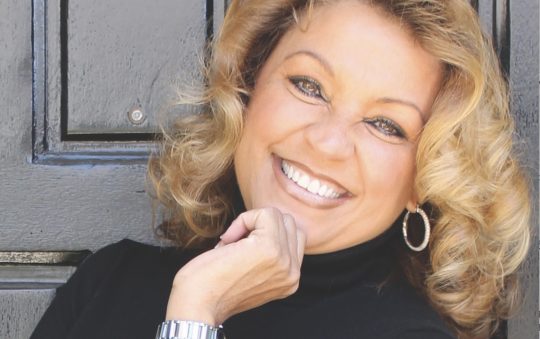
Nearly a decade ago, I walked into the kitchen at Susan Miller Dorsey Senior High School and saw it for what it was. A promise to my community.
I was on the cusp of taking a job in corporate America, but that visit in 2013, which I took at the encouragement of a dear friend, began a love triangle between me, my community, and food.
I grew up in this neighborhood. My dad went to Dorsey. I was student body president at Dorsey. Returning to lead the culinary program felt like coming home. It’s taken years of focus and faith, but I made a promise to break the mold of traditional home economics or “foods” classes and develop a comprehensive curriculum that creates culinary career pathways for our students – through food.
For some of my students, school is a struggle. At the beginning of the school year, I hear comments like “why do I need to learn fractions?” or “what’s the point of chemistry if I’m not going to work in a lab?”

My students learn very quickly that the culinary arts demand a fundamental understanding of every discipline. Math is ever-present in cooking and fractions are how we measure. Half a teaspoon too much salt in a red velvet cake can ruin dessert.
They learn that science is essential because every new recipe they create is a hypothesis they need to test. By the end of the school year, the majority of my 150 students have made the connection between what they are being taught in their classes and the real-world application of that knowledge, providing them with deeper motivation and effort to learn.
Food connects us as humans. Most of my students have never traveled to another country and have limited exposure to other cultures. Yet they can explore anywhere in the world through food.

One day, we are in Morocco, the next, South Korea or Italy. New tastes and flavors can open your eyes to other cultures and build openness and appreciation. As my students learn about the origin of saffron or curries, and how different cultures use food to celebrate and to mourn, they begin to connect to the people from those countries.
Perhaps the most important aspect of our culinary program at Dorsey is knowing that through food education, our students are learning about how the kinds of foods we put into our bodies fuel us and impact our overall health. Too many of the kids in our community are predestined to chronic illnesses such as high blood pressure, diabetes, and obesity because of limited access to nutritious foods and nutrition education.
This year, Dorsey is launching an innovative new pilot with our partner Common Threads, a national non-profit focused on nutrition education and bridging the nutrition equity gap in under-served communities. The pilot curriculum will build upon the existing hands-on cooking classes and include a focus on the nutrition that comes from food and the benefits of healthy eating.
Many of my students are responsible for preparing food for their families. It’s our hope that by infusing nutrition knowledge into the program we can have a healthy impact on the entire family.
The pilot also aims to expose students to nutrition-related healthcare careers through job shadowing and internships. Students will co-teach health-centric lessons to elementary and middle schoolers in our feeder schools, reinforcing what they learn and passing knowledge onto future high schoolers.
These elements are designed to expand our existing culinary program beyond workplace readiness for the food industry to bridge the gap between culinary education and healthcare training, priming students from our community to confidently pursue a future in healthcare.
I look forward to launching this pilot and believe that it can become a model for other schools in Los Angeles. This kind of innovative programming helps to meet the promise I felt the first time I walked into the Dorsey kitchen by providing my students with the skills and knowledge to have a choice.
Upon completion of the program, they can choose to put their culinary skills to use, or choose to pursue a healthcare-related job that they may have never considered. Most importantly, it promises to equip them with tools to live long, healthy, successful lives.
Sonja Mason-Briscoe is the Culinary Arts Instructor and Lead Teacher of the School of Business and Culinary Arts Management program at Susan Miller Dorsey Senior High School in Los Angeles. She also runs a successful catering business with her husband that employs many of her former students. Sonja is a lifelong Angeleno and advocate for nutrition equity.







